There are so many different standard institutes and organizations worldwide. Every country will have their own standard system by national organization or sectors. In this post, we list 9 common international known standard institute and organizations.
1. AISI – American Iron and Steel Institute
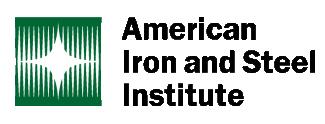
The American Iron and Steel Institute (AISI) is an association of North American steel producers. Its predecessor organizations date back to 1855 making it one of the oldest trade associations in the United States. AISI assumed its present form in 1908, with Elbert H. Gary, chairman of the United States Steel Corporation, as its first president.
Its development was in response to the need for a cooperative agency in the iron and steel industry for collecting and disseminating statistics and information, carrying on investigations, providing a forum for the discussion of problems and advancing the interests of the industry.
2. ASTM – American Society for Testing and Materials
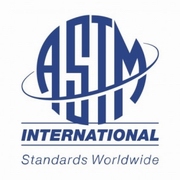
ASTM International, known until 2001 as the American Society for Testing and Materials (ASTM), is an international standard organization that develops and publishes voluntary consensus technical standards for a wide range of materials, products, systems, and services. Some 12,575 ASTM voluntary consensus standard operate globally.The organization’s headquarters is in West Conshohocken, Pennsylvania, about 5 mi (8.0 km) northwest of Philadelphia.
ASTM, founded in 1898 as the American Section of the International Association for Testing and Materials, predates other standards organizations such as BSI (1901), DIN (1917), ANSI (1918) and AFNOR (1926).
3. DIN – Deutsches Institut für Normung
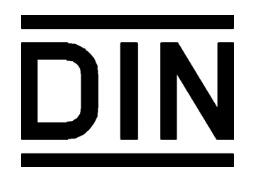
Deutsches Institut für Normung e.V. (DIN; in English, the German Institute for Standardization) is the German national organization for standardization and is the German ISO member body. DIN is a Registered German Association (e.V.) headquartered in Berlin. There are currently around thirty thousand DIN Standards, covering nearly every field of technology.
Founded in 1917 as the Normenausschuß der deutschen Industrie (NADI, “Standardisation Committee of German Industry”), the NADI was renamed Deutscher Normenausschuß (DNA, “German Standardisation Committee”) in 1926 to reflect that the organization now dealt with standardization issues in many fields; viz., not just for industrial products. In 1975 it was renamed again to Deutsches Institut für Normung, or ‘DIN’ and is recognized by the German government as the official national-standards body, representing German interests at the international and European levels.
4. BS – British Standards
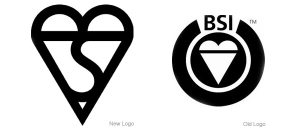
British Standards (BS)are the standards produced by BSI Group which is incorporated under a Royal Charter (and which is formally designated as the National Standards Body (NSB) for the UK).The BSI Group produces British Standards under the authority of the Charter, which lays down as one of the BSI’s objectives.
Products and services which BSI certifies as having met the requirements of specific standards within designated schemes are awarded the Kitemark.
5. ANSI – American National Standards Institute
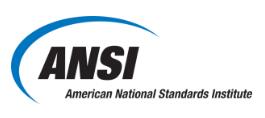
The American National Standards Institute (ANSI, /ˈænsiː/ an-see) is a private non-profit organization that oversees the development of voluntary consensus standards for products, services, processes, systems, and personnel in the United States. The organization also coordinates U.S. standards with international standard so that American products can be used worldwide. For example, standards ensure that people who own cameras can find the film they need for that camera anywhere around the globe.
ANSI accredits standards that are developed by representatives of other standards organizations, government agencies, consumer groups, companies, and others. These standards ensure that the characteristics and performance of products are consistent, that people use the same definitions and terms, and that products are tested the same way. ANSI also accredits organizations that carry out product or personnel certification in accordance with requirements defined in international standard.
6. JIS – Japanese Industrial Standards
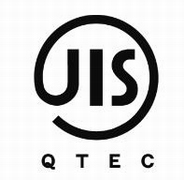
Japanese Industrial Standards (JIS) (Nippon Kōgyō Kikaku?) specifies the standards used for industrial activities in Japan. The standardization process is coordinated by the Japanese Industrial Standard Committee and published through the Japanese Standards Association.
7. AFNOR – Association Française de Normalisation
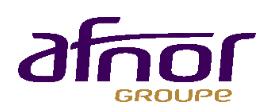
Association Française de Normalisation (AFNOR) is the French national organization for standardization and its International Organization for Standardization member body.
The AFNOR Group develops its international standardization activities, information provision, certification and training through a network of key partners in France who are members of the association.
8. AS – Standards Australia

Standards Australia is a standards organisation established in 1922 and is recognised through a Memorandum of Understanding with the Australian government as the peak non-government standards development body in Australia.
Standards Australia develops internationally aligned Australian standard (AS) and participates in standards-related activities that deliver benefit to the nation. Standards Australia and Standard New Zealand work together to develop joint standards (AS/NZS) Standards Australia is also the Principal Sponsor of the Australian International Design Awards.
9. ASME – American Society of Mechanical Engineers
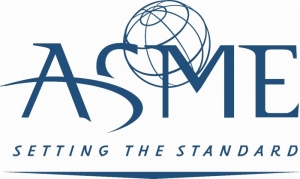
The American Society of Mechanical Engineers (ASME) is a professional association that, in its own words, “promotes the art, science, and practice of multidisciplinary engineering and allied sciences around the globe” via “continuing education, training and professional development, codes and standards, research, conferences and publications, government relations, and other forms of outreach.” ASME is thus an engineering society, a standards organization, a research and development organization, a lobbying organization, a provider of training and education, and a nonprofit organization. Founded as an engineering society focused on mechanical engineering in North America, ASME is today multidisciplinary and global.
ASME has over 140,000 members in 158 countries worldwide.
Contact: Cindy
Phone: +86-13751010017
E-mail: sales@iecgauges.com
Add: 1F Junfeng Building, Gongle, Xixiang, Baoan District, Shenzhen, Guangdong, China